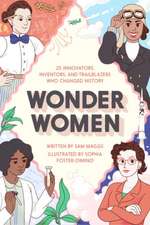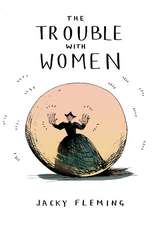Understanding I Know Why the Caged Bird Sings: A Student Casebook to Issues, Sources, and Historical Documents: The Greenwood Press "Literature in Context" Series
Autor Joanne Megna-Wallaceen Limba Engleză Hardback – 24 iun 1998 – vârsta până la 17 ani
Din seria The Greenwood Press "Literature in Context" Series
- 42%
 Preț: 245.97 lei
Preț: 245.97 lei - 42%
 Preț: 245.78 lei
Preț: 245.78 lei - 42%
 Preț: 228.00 lei
Preț: 228.00 lei - 42%
 Preț: 245.58 lei
Preț: 245.58 lei - 42%
 Preț: 245.40 lei
Preț: 245.40 lei - 39%
 Preț: 246.93 lei
Preț: 246.93 lei - 42%
 Preț: 229.41 lei
Preț: 229.41 lei -
 Preț: 245.89 lei
Preț: 245.89 lei - 42%
 Preț: 246.93 lei
Preț: 246.93 lei - 42%
 Preț: 246.56 lei
Preț: 246.56 lei - 32%
 Preț: 245.40 lei
Preț: 245.40 lei - 44%
 Preț: 227.33 lei
Preț: 227.33 lei - 52%
 Preț: 228.55 lei
Preț: 228.55 lei - 42%
 Preț: 228.38 lei
Preț: 228.38 lei - 42%
 Preț: 228.19 lei
Preț: 228.19 lei - 42%
 Preț: 248.72 lei
Preț: 248.72 lei - 42%
 Preț: 227.06 lei
Preț: 227.06 lei - 42%
 Preț: 245.50 lei
Preț: 245.50 lei - 42%
 Preț: 247.78 lei
Preț: 247.78 lei - 42%
 Preț: 229.61 lei
Preț: 229.61 lei - 52%
 Preț: 226.67 lei
Preț: 226.67 lei - 52%
 Preț: 226.96 lei
Preț: 226.96 lei - 42%
 Preț: 271.31 lei
Preț: 271.31 lei - 42%
 Preț: 226.67 lei
Preț: 226.67 lei - 42%
 Preț: 226.20 lei
Preț: 226.20 lei - 42%
 Preț: 204.29 lei
Preț: 204.29 lei - 42%
 Preț: 229.80 lei
Preț: 229.80 lei - 48%
 Preț: 247.50 lei
Preț: 247.50 lei - 42%
 Preț: 252.86 lei
Preț: 252.86 lei - 42%
 Preț: 229.53 lei
Preț: 229.53 lei - 42%
 Preț: 227.73 lei
Preț: 227.73 lei - 52%
 Preț: 226.39 lei
Preț: 226.39 lei - 42%
 Preț: 245.31 lei
Preț: 245.31 lei - 31%
 Preț: 245.50 lei
Preț: 245.50 lei - 42%
 Preț: 247.58 lei
Preț: 247.58 lei - 51%
 Preț: 229.61 lei
Preț: 229.61 lei
Preț: 227.24 lei
Preț vechi: 391.93 lei
-42% Nou
Puncte Express: 341
Preț estimativ în valută:
43.48€ • 45.51$ • 36.19£
43.48€ • 45.51$ • 36.19£
Carte tipărită la comandă
Livrare economică 31 martie-14 aprilie
Preluare comenzi: 021 569.72.76
Specificații
ISBN-13: 9780313302299
ISBN-10: 0313302294
Pagini: 208
Dimensiuni: 156 x 235 x 21 mm
Greutate: 0.49 kg
Ediția:New.
Editura: Bloomsbury Publishing
Colecția Greenwood
Seria The Greenwood Press "Literature in Context" Series
Locul publicării:New York, United States
ISBN-10: 0313302294
Pagini: 208
Dimensiuni: 156 x 235 x 21 mm
Greutate: 0.49 kg
Ediția:New.
Editura: Bloomsbury Publishing
Colecția Greenwood
Seria The Greenwood Press "Literature in Context" Series
Locul publicării:New York, United States
Notă biografică
JOANNE MEGNA-WALLACE is Professor of Humanities at Bradford College in Bradford, Massachusetts, where she teaches French and women's literature. She is the author of articles on Maya Angelou, Jean-Paul Sartre, and Simone de Beauvoir. Her current interests include francophone and ethnic literatures, especially African American women's literature.
Cuprins
IntroductionThe Journey to Maturity and Self-Esteem: A Literary Analysis of Maya Angelou's I Know Why the Caged Bird SingsViolence and Intimidation as a Means of Social Control: A Historical Overview of Race Relations in the SouthFrom James P. Comer, "The Dynamics of Black and White ViolenceFrom The Mob Still Rides: A Review of the Lynching Record, 1931-1935From the Arkansas Gazette: "Young Negro Lynched at Lepanto" (1936) and "Negro Lynched by Mob at Crossett" (1932)"Tech 'Er Off, Charlie," in Tom E. Terrill and Jerrold Herisch, eds., Such as Us: Southern Voices of the Thirties (1978)Segregated Schools: An Institutional Method of Social ControlFrom Ina Corinne Brown, National Survey of the Higher Education of Negroes (1942)From Charles S. Johnson, Growing Up in the Black Belt (1941)From U.S. Department of the Interior, Bureau of Education, "The Public School System of Arkansas" (1923)From Edward E. Redcay, County Training Schools and Public Secondary Education for Negroes in the South (1935)From Charles S. Johnson, Growing Up in the Black Belt (1941)The African-American ChurchFrom Harry V. Richardson, Dark Glory (1947)From Charles S. Johnson, Growing Up in the Black Belt (1941)From Ralph A. Felton, These My Brethren: A Study of 570 Negro Churches and 1542 Negro Homes in the Rural South (1950)From James H. Cone, The Spirituals and the Blues: An Interpretation (1972)From U.S. Department of Commerce, Bureau of the Census, Religious Bodies: 1936 (1941)The African American Family and Other Role ModelsFrom Abram Kardiner and Lionel Ovesey, The Mark of Oppression: Explorations in the Personality of the American Negro (1951)From New York Times: "Thousands in Harlem Celebrate Louis Victory" (1935)From Eva Mueller and William Ladd, Negro-White Differences in Geographic Mobility (1964)Child Sexual AbuseFrom U.S. Department of Health and Human Services, Child Sexual Abuse: Incest, Assault and Sexual Exploitation (1981)CensorshipFrom Attacks on the Freedom to Learn: 1996 Report (1996)From Banned Books Week Resource Guide, 1997 (1997)From Attacks on the Freedom to Learn: 1996 Report (1996)From the [Alabama] Decatur Daily (1995-1996)Bibliographic EssayChronology of Maya Angelou's CareerIndex










